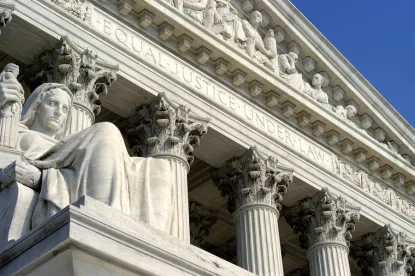Yesterday the Supreme Court granted certiorari in Cuozzo Speed v. Lee, which represents the first time the high Court will address an AIA proceeding, in this case an IPR decision. Based on the questions presented in the petition for certiorari, the case is likely to have a broad impact on post-grant proceedings. The Court will address whether it is appropriate for the PTAB to apply the “BRI” (broadest reasonable interpretation) standard to claim construction, which may partially account for the higher rate of patent invalidity in AIA proceedings up to this point. The decision to hear the case by the Supreme Court may signal an intent to modify BRI, which could benefit patent owners.
The two questions presented in the petition for certiorari are as follows:
1. whether the Court of Appeals erred in holding that, in IPR proceedings, the Board may construe claims in an issued patent according to their broadest reasonable interpretation rather than their plain and ordinary meaning;
2. whether the Court of Appeals erred in holding that, even if the Board exceeds its statutory authority in instituting an IPR proceeding, the Board’s decision whether to institute an IPR proceeding is judicially unreviewable.
A primary argument against BRI (relied upon by Judge Newman in her dissent in the Federal Circuit’s original decision) is the fact that the PTAB does not provide a reasonable way for patent owners to amend their claims during post-grant proceedings. Given the practical challenges in meeting the high standard set by PTAB for making an amendment, patent owners feel that BRI should not be used. The alternative would be the same standard that is used by the courts in patent litigation (the “Phillips” standard), which may result in a narrower construction.
The application of BRI does not always lead to different claim constructions between the courts and the PTAB, but the precise construction applied by the PTAB to claims during IPR proceedings can be critical to the final written decision. See “Lessons Learned from the First Successful Pharmaceutical IPR Defense of Orange Book Listed Patents”.
Of course, the Supreme Court does not always grant certiorari to reverse the Federal Circuit, but a majority of recent decisions have done so.




 />i
/>i
